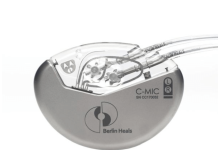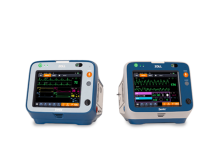Rhaeos, Inc, a clinical stage medical device technology company, is pleased to announce that it has been awarded a $1.5 million grant (Federal Award # 1UG3NS130338) from the National Institutes of Health (NIH) National Institute of Neurological Disorders and Stroke (NINDS) through its Blueprint MedTech program. This grant will further the development of its FDA breakthrough designated medical technology designed to transform the management of hydrocephalus, a neurological condition affecting over one million Americans.

Hydrocephalus, characterized by an accumulation of cerebrospinal fluid (CSF) in the brain’s ventricles, is a debilitating condition with severe consequences if left untreated. It affects approximately 1 in 1,000 live births, and the lack of a cure necessitates the surgical implantation of shunts to divert excess CSF away from the brain. However, shunts are highly failure-prone, with over 50% of recipients requiring surgical revision or replacement within a decade and shunt-related hospital admissions costing over $2 billion annually, which represents only a fraction of the total cost of hydrocephalus care. The diagnostic challenges associated with shunt malfunction, such as non-specific early symptoms, often lead to unnecessary emergency department visits, invasive testing, and a significant burden on patients and their families.
Rhaeos is tackling this critical issue with the development of FlowSense, the world’s first wearable, wireless CSF flow monitor. Earlier funding for FlowSense from the NIH-NINDS through Award #U44NS121555 enabled the design and clinical testing of the device in a hospital setting through a multi-center clinical study for a rapid spot check of flow, bedside in the hospital. The newly funded Blueprint MedTech grant furthers this work through the development of continuous 24-hour monitoring of CSF flow through implanted shunts via noninvasive wearable sensors for inpatient and at-home monitoring.
Moreover, FlowSense’s ability to collect data during sleep will open new avenues for studying CSF flow dynamics and improving our understanding of hydrocephalus pathophysiology.
RELATED: Belgium medtech Hippo Dx raises €4.4M for its fast, cheap, accurate allergy testing device
“Today, questions about shunt function typically must be answered by a trip to a neurosurgeon and costly imaging, which is particularly difficult for those in underserved and rural populations,” said Chad Webb, PhD, CTO of Rhaeos, Inc and Principal Investigator of the grant. “We want to see those insights brought to the patient where they are. This grant supports developing the next evolution of our remote monitoring capabilities to monitor shunt flow from home and over extended periods, which we believe will enable new insights, new care pathways, and improved outcomes for those living with and managing hydrocephalus.”
Rhaeos, Inc is committed to advancing medical technology to enhance the lives of patients and healthcare providers. With the support of the NIH’s Blueprint MedTech grant, Rhaeos is poised to make a significant impact on the field of neurosurgery and hydrocephalus management.
About Rhaeos:
Rhaeos is a private medical technology company spun out of Northwestern University and is focused on developing wearable sensors to improve the care of people suffering from chronic and difficult-to-treat conditions. The company’s novel FlowSense shunt monitor is a non-invasive, wireless, thermal sensor that addresses a clinical unmet need for people with hydrocephalus and is funded by the Steele Foundation for Hope, National Institute of Neurological Disorders and Stroke at the National Institutes of Health, National Science Foundation, MedTech Innovator, the Pediatric Hydrocephalus Foundation, the Southwest Pediatric Device Consortium, the National Capital Consortium for Pediatric Device Innovation, the UCSF-Stanford Pediatric Device Accelerator, the West Coast Consortium for Technology & Innovation in Pediatrics, and public, private, and institutional investors.




